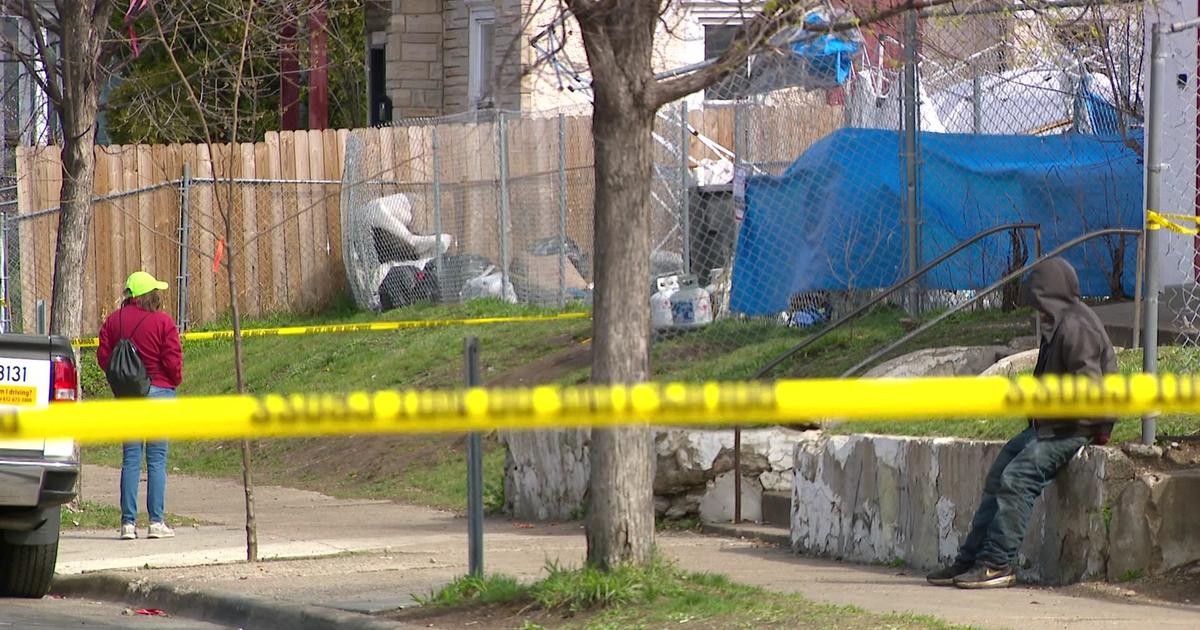Minn. Sheriffs Propose Improved Gun Background Checks
MINNEAPOLIS (AP) -- Citing a workplace shooting last fall in Minneapolis and other incidents, a coalition of law enforcement officers, prosecutors and others said it's time for lawmakers to strengthen the state's gun-buyer background checks and give people with untreated mental illnesses better access to services.
"Gun control alone will not solve the problem of guns and extreme violence," Hennepin County Sheriff Rich Stanek said Wednesday. "This has become a public health issue as well as a public safety issue."
Stanek said studies show that people with untreated mental illnesses are more likely to become victims or perpetrators of violent crime. He said several suspects in recent mass shootings nationwide had either a history of mental illness or were believed to have an untreated mental illness. Among them were 36-year-old Andrew Engeldinger, who killed six people before taking his own life at Accent Signage in Minneapolis.
"How do we get these folks treatment before they become violent?" Stanek said.
Authorities also pointed to a case earlier this year in Carver County in which a man previously committed as a mentally ill and dangerous person was found with several assault rifles. A criminal complaint said Christian Oberender, who killed his mother with a shotgun in 1995, was barred from owning firearms.
Carver County Sheriff Jim Olson said Oberender, 32, wasn't in the state's system and had managed to get a gun permit last summer.
"Never, and I mean never, should a person who has been deemed mentally ill and dangerous be allowed to purchase a handgun," Olson said.
Jill Oliveira, a spokeswoman with the Bureau of Criminal Apprehension, said her agency relies on law enforcement and courts to provide data. No information about Oberender was submitted, she said.
The role of mental illness in gun violence has been discussed on the federal level in the wake of last month's elementary school shooting in Newtown, Conn., which left 20 children and six adults dead. President Barack Obama's gun control plan involves efforts to increase mental health services, including boosting funding for training to get youth into treatment faster.
On Wednesday, the Minnesota coalition announced its own proposed reforms to address mental illness in the state.
Among the proposals, the group wants to improve a database used to conduct background checks on people who want to own guns. The database, known as the National Instant Criminal Background Check System, is managed by the BCA and includes information from local law enforcement or courts.
The system is only as current as the information provided by local authorities. The sheriffs are proposing that all factors that would disqualify someone from owning a gun — such as a felony conviction or a mental health court order — be sent to the BCA electronically within 24 hours and immediately entered into the database.
Oliveira said state statute already requires law enforcement agencies to submit felony arrests and other data to the BCA within 24 hours. Statutes do not give courts or corrections a time frame for reporting data.
The process for the checks themselves works like this: When an applicant goes to local law enforcement for a weapons permit, that agency seeks a background check from the BCA. The check includes a Minnesota criminal history record and information from the federal database such as factors that would prohibit gun ownership. It also includes a query of the Department of Human Services to see if the applicant has been committed. If there's a possible match, the law enforcement agency is told to contact DHS for more information.
Of the more than 2.1 million records the BCA has received since 1990, about 168,000 are incomplete, or in "suspense" because local law enforcement has not provided required data.
The coalition also wants to improve law enforcement access to court mental health records. Currently, mental health court records are public, but are not readily accessible to officers responding to 911 calls.
The group also proposed changing the way the courts evaluate individuals for mental competency and civil commitment.
Currently, certain inmates are evaluated to make sure they are mentally competent for trial. Then, if there is a commitment hearing, they are evaluated again — sometimes weeks or months later. The group is proposing combining the evaluations in some cases.
"I believe we can simplify the process to ensure that the mentally ill do not languish in a jail cell without treatment," Stanek said. "How do we get these folks treatment before they become violent?"
The group also wants to review the state's civil commitment law. Under current law, courts may only order mental health treatment when an individual has been determined to be a danger to themselves or others. But the group says there might be less serious situations in which courts could order mental health treatment without putting an individual behind bars.
The coalition also is looking to improve the resources for inpatient and outpatient psychiatric care.
Sue Abderholden with the National Alliance on Mental Illness Minnesota said community services should be the focus, so people can get help where they live. She added that discussion on changing the civil commitment law should be postponed until after this legislative session, because she and her group think the issue needs a thorough look.
(© Copyright 2013 The Associated Press. All Rights Reserved. This material may not be published, broadcast, rewritten or redistributed.)



